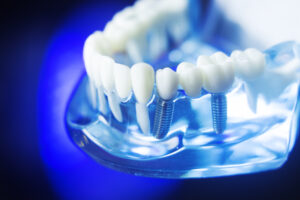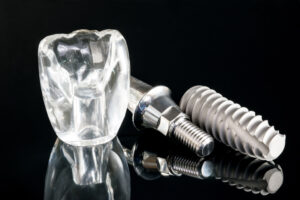All adults should schedule dental cleanings at least once every six months. Doing so is key to guarding against issues that may require more extensive treatment.
Sometimes, a patient may need more thorough cleaning to prevent gum disease. When this is the case, a dentist might offer scaling and root planing treatment.
Do you have a scaling and root planing scheduled? If so, this guide will explain what you should and shouldn’t eat after your appointment.
Scaling & Root Planing: What You Need to Know
A dentist may recommend scaling and root planing when a basic dental cleaning isn’t sufficient to serve a patient’s needs. The process involves the following:
Scaling and root planing often serve to guard against gum disease. According to the CDC, nearly half of Americans over the age of 30 experience some degree of gum disease, meaning there’s a reasonable chance your dentist will recommend scaling and root planing at some point.
Eating After Scaling & Root Planing: Important Information About Foods to Avoid
The best source of advice regarding what you should and shouldn’t eat after scaling and root planing is your dentist. Follow their recommendations after your appointment, and ask them any questions you may have if you’re still not sure whether you need to avoid certain foods. They’ll gladly discuss the matter in greater detail.
Generally, though, as your gums heal from scaling and root planing, you should strive to avoid foods and beverages that may irritate them. Examples of foods you shouldn’t eat while you heal from scaling and root planing are:
Try to avoid consuming alcohol and using tobacco products after scaling and root planing as well. Both can interfere with the healing process.
What Can You Eat After Scaling & Root Planing?
Types of foods that are unlikely to irritate your gums as they heal include:
Be aware that eating the right foods during the healing process isn’t the only way to avoid issues. You also need to keep your teeth and gums clean. Your dentist could recommend brushing techniques or products you may use to minimize irritation as your gums heal.
Ask Your Dentist About Eating After Scaling & Root Planing
Remember, answering your questions is part of a dentist’s job. If your dentist believes scaling and root planing are necessary, they’ll happily ensure you know what you can do to optimize the healing process.
What’s most important is that you follow their advice and contact them if you do notice gum irritation. Fortunately, this is unlikely to be a problem if you stick with your dentist’s recommendations.
Learn More About Scaling & Root Planing in Monmouth County, NJ
Do you think you may be in need of scaling and root planing? If so, our team at Champagne Smiles, in Morganville, NJ, can take a closer look at your teeth and gums to determine if this treatment is necessary. If you’re ready to start your journey to better oral health with Dr. Richard Champagne and a truly collaborative and compassionate dental team, contact Champagne Smiles in Morganville, NJ today to schedule your first appointment.




